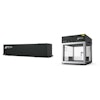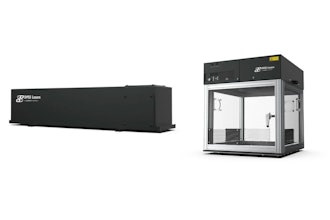KUALA LUMPUR, Malaysia (AP) -- The chairman of Malaysia's state-controlled carmaker Proton has called for the automaker's sale to make it more competitive in an increasingly open market.
In an interview Wednesday with The Associated Press, Chairman Mohamad Nadzmi Salleh said selling Proton to local entrepreneurs would better prepare it for industry liberalization and ease the government's burden of having to protect the car industry with financial help and other privileges.
But he refused to comment on local media reports that Malaysian auto group DRB-HICOM Bhd. has made a bid to purchase 32 percent of Proton from government investment arm Khazanah Nasional, which owns 43 percent of the carmaker.
"I believe that businesses should be run by the private sector generally because they are better allocated with resources and will push themselves to perform better than government-run entities," Mohamad Nadzmi said.
Once the king of the road, Proton has seen its fortunes dwindle due to growing competition from local and foreign competitors as Malaysia opens up its auto market. Malaysia is Southeast Asia's largest passenger car market with 548,115 vehicles sold last year.
Further reductions of the protection afforded to Proton appear in store with the government saying it may remove rules that protect local carmakers as it reviews a 3-year-old auto policy to boost foreign investment. Although Malaysia has cut import taxes, it still has high taxes on locally assembled foreign cars and privileges are given to national carmakers.
Proton has been hunting for a foreign partner but the government's insistence on maintaining control over a national corporate icon has made it difficult for Proton to seal any meaningful partnership.
Germany's Volkswagen AG ended alliance talks with Proton in 2007 but recently revived negotiations, sparking interest from local auto companies such as DRB-HICOM, which is a car assembler and major components supplier to Proton.
Mohamad Nadzmi, managing director of Proton from 1993 to 1996, said the automaker has suffered partly because its management changed too often and the company made "judgment errors" when it lost focus and failed to improve its product lineup.
"During my time, our market share was 74 percent. It has now eroded and at one stage was below 20 percent but it shouldn't slide below 30 percent," said Mohamad Nadzmi, who was appointed chairman in January.
"I am sure we can do better as a private company ... then the government won't be saddled with the need to protect the industry because the rules of the game will be very clear."
Proton returned to the black in the quarter through March, with revenue boosted by the launch of its first seven-seater multipurpose vehicle introduced in March. Its market share rose to 27 percent in the first half of this year from below 25 percent last year.
The new 1.6 liter-engine Exora marks a turning point in Proton's product range, which previously focused only on passenger cars.
Mohamad Nadzmi insisted Proton is "not a lame duck" and has much to offer to a foreign partner in terms of its low operation costs, comprehensive vendor system and unused production capacity in its plants.
He said the company's survival would depend on its ability to bolster exports, which remained below 10 percent of its total sales.
Proton is in talks with India's Hero Group for a small car project, targeting a huge market of motorcycle riders migrating to cars, he said but declined to give details. Officials have said they hope to wrap up talks by the end of the year.
"Exports is the way forward. We are not an ailing organization about to die and need people to rescue us ... but we must increase volume in the local and international market. We must have a comprehensive approach toward product development, that's the key," he said.
Mohamad Nadzmi also defended some level of government assistance to Proton, saying it deserve incentives for the billions of dollars of investment it made to develop the auto industry.
"We do research and development, we have invested billions of dollars and created tens of thousands of jobs. It's not protection but we deserve some incentives from the government," he said.


















